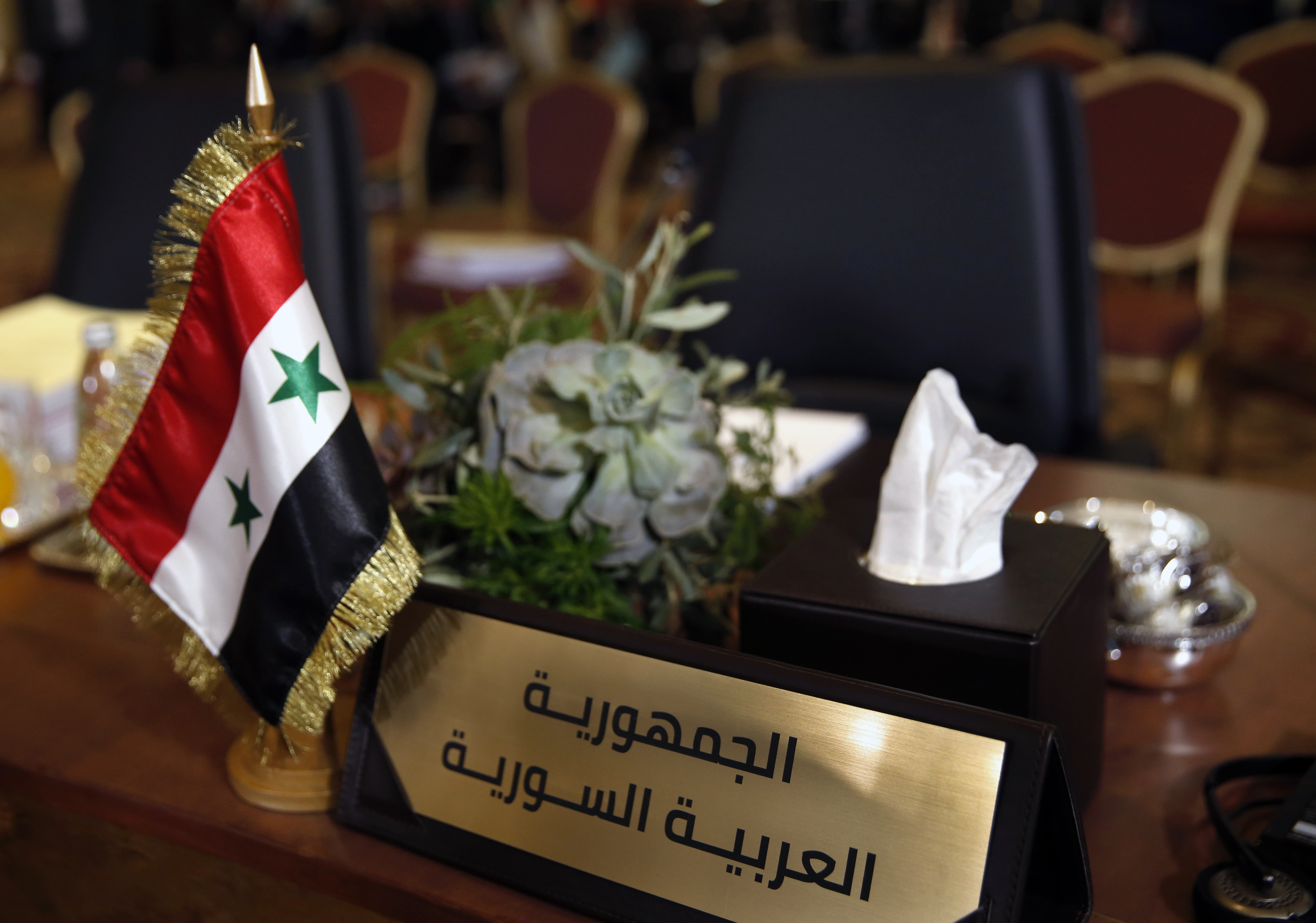
Arab ministers meet in Beirut ahead of economic summit
BEIRUT (AP) — Lebanon used an Arab economic meeting Friday to urge the Arab League to restore Syria’s membership, calling it a “historic shame” to keep the Arab country out of the forum.
The Lebanese Foreign Minister, Gebran Bassil, spoke before Arab ministers meeting in Beirut ahead of a regional summit that has been overshadowed by divisions and controversy over Syria’s participation.
Organizers of the Arab Economic and Social Development Summit, or AESD, initially said that seven Arab heads of state would attend Sunday’s summit which is being held in Lebanon for the first time. But only two heads of state are now expected, the leaders of Somalia and Mauritania, after several others pulled out despite previously having confirmed their attendance.
Their absence appeared to be a snub to Lebanon, where pro-Syrian groups led by the Iranian-backed Hezbollah have insisted that the Syrian government should be invited.
“Syria is the biggest absentee in our conference … Syria should be in our arms rather than throwing it in the arms of terrorism,” Bassil said in his speech Friday. “We should not wait to get permission for its return so that we don’t commit a historic shame by suspending a member because of external orders.”
Syria’s membership in the 22-member Arab League was suspended in 2011 after the Syrian government’s military crackdown on protesters calling for reforms. The protests later turned into an armed insurgency and full blown war. With crucial political and military backing from Russia and Iran, Syrian President Bashar Assad is largely seen as having won the war, and some Arab states are calling for readmitting Syria back into the Arab fold.
Arab League Secretary General Ahmed Aboul-Gheit told reporters during a news conference that there was no clear Arab position regarding reinstating Syria’s membership. “There are different points of views,” he said.
He spoke hours after assistant Arab League chief Houssam Zaki told reporters that “Syria’s return is inevitable,” pointing out that Syria was never expelled, only suspended.
The summit, which Lebanon had hoped would boost Lebanon’s sinking economic credentials, has been marred by controversy days before delegates arrive. Inviting Syria was only one issue. A days-long debate raged over whether Libya should get an invitation, because of the unresolved mystery surrounding the disappearance of a Lebanese cleric in Libya four decades. Libya decided to stay away from the meeting after Lebanese supporters of the cleric tore down a Libyan flag on a Beirut street.
The AESD was formed in 2009 as an exclusively economic and development conference that tends to involve the private sector, including banks, chambers of commerce, industry and agriculture. The agenda does not include the reconstruction of Syria, much of it ruined in nearly eight years of civil war.
The Western Journal has not reviewed this Associated Press story prior to publication. Therefore, it may contain editorial bias or may in some other way not meet our normal editorial standards. It is provided to our readers as a service from The Western Journal.
Truth and Accuracy
We are committed to truth and accuracy in all of our journalism. Read our editorial standards.
Advertise with The Western Journal and reach millions of highly engaged readers, while supporting our work. Advertise Today.












